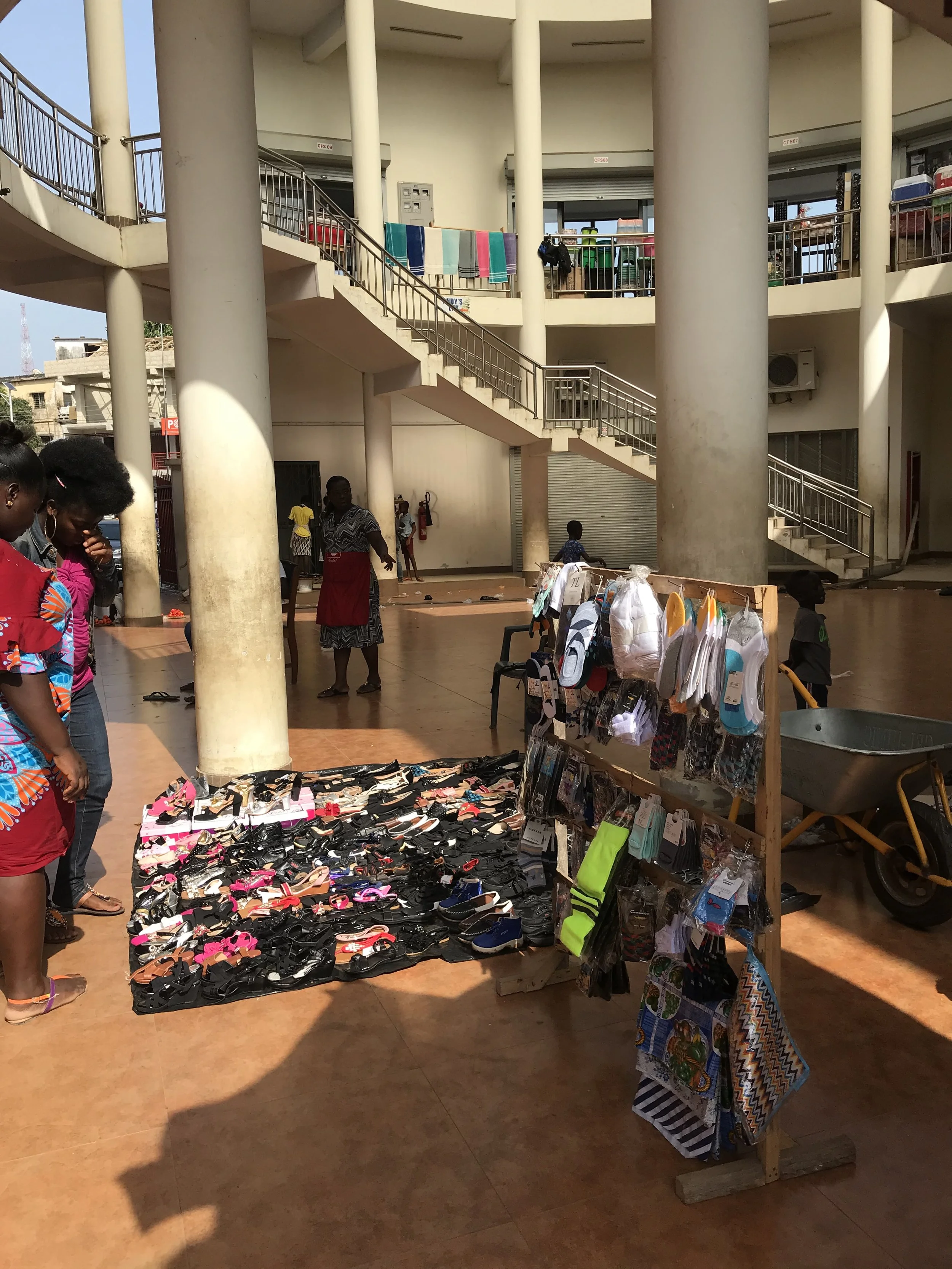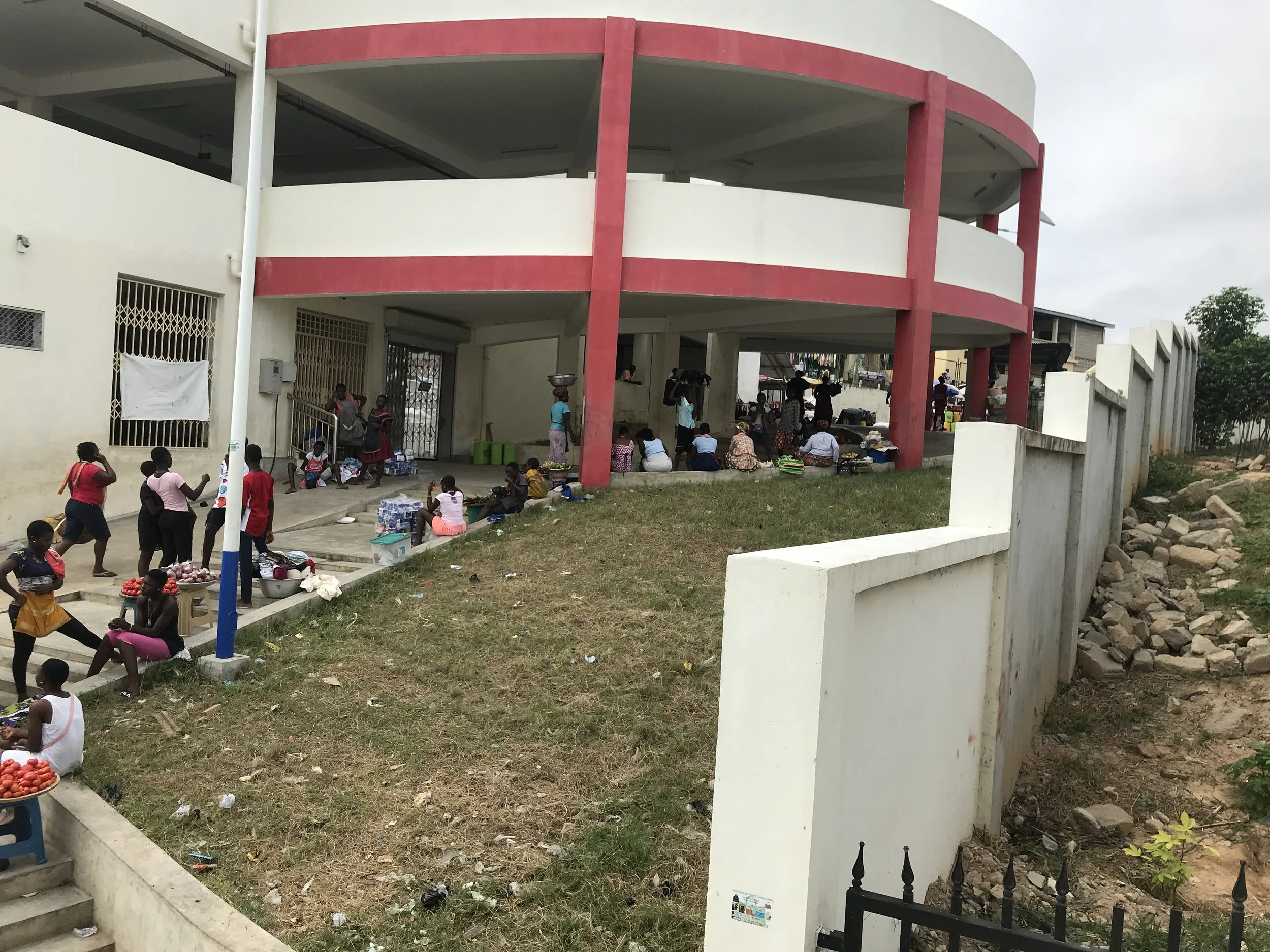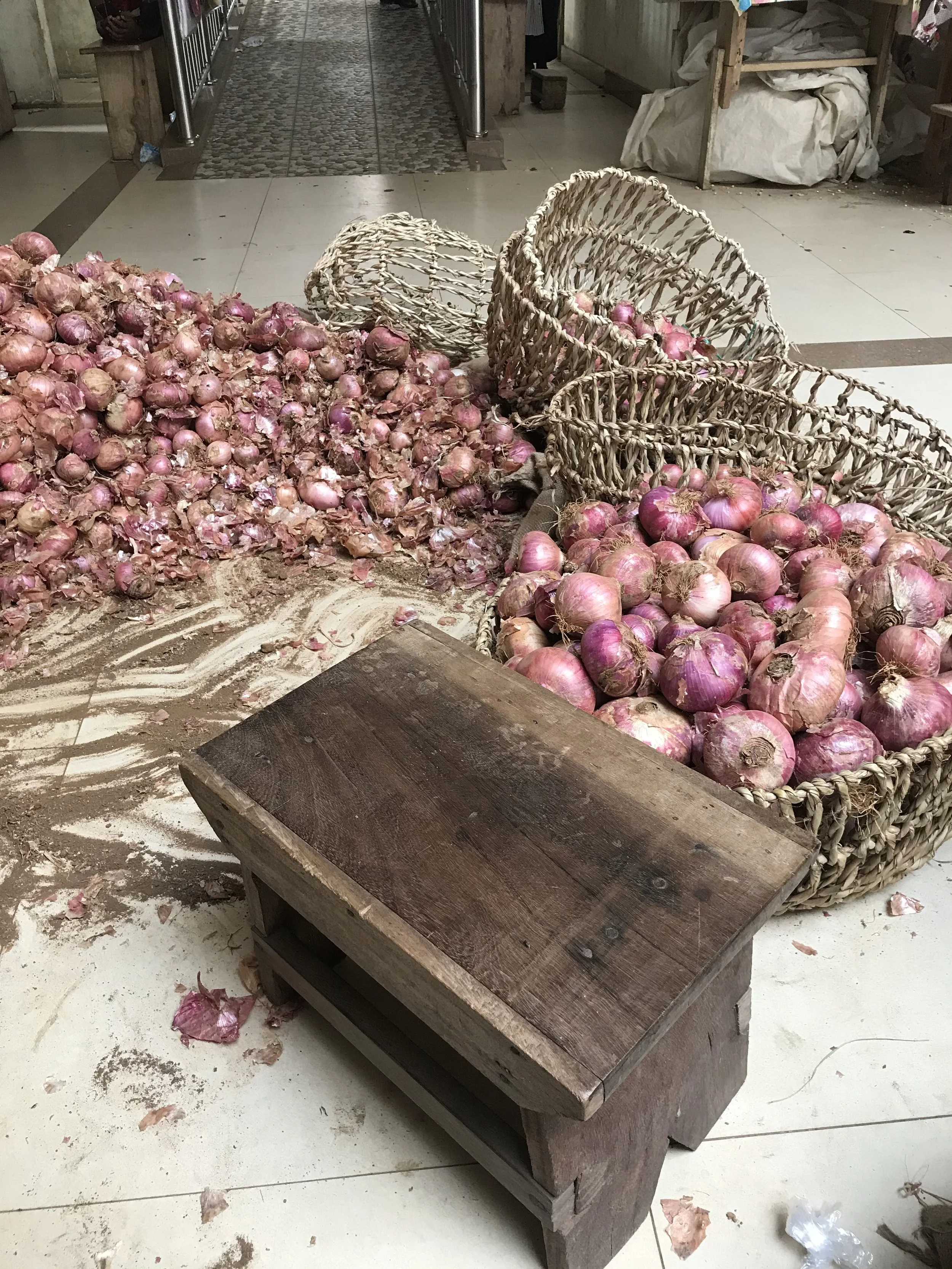
Research
Current and future research projects exploring cities and the people that shape them.
Current Projects:
-
Kotokuraba Market Redevelopment
The focus of my dissertation project was modernization of Kotokuraba Market, located in the Central Region’s capital city of Cape Coast. The new Kotokuraba Market—inaugurated in November 2016—included many modern additions: enclosed glass-windowed shops, public restrooms, a drainage system, a multi-level parking garage, an office block, a public fountain, and an attractive glass atrium. Even at first glance these modern amenities, despite their practical value, stand in direct contrast to the narrow streets, open sewers, and weathered pastel facades of the colonial-style buildings that otherwise dominate the urban fabric and spatial culture of Cape Coast.
Using an array of archival research, policy and document analysis, and ethnographic observation in the newly redeveloped market, I explored how various stakeholders were engaged in (or excluded from) the market redevelopment process, how market stakeholders experienced the recent transformation, and how market sellers and urban residents responded to and adapted to the reconfiguration of the space.
-
The Real Market Makers
Building upon my dissertation research on the redeveloped Kotokuraba Market, I focus on the spatial adaptations and vernacular placemaking practices that have emerged in the aftermath of the market’s reconfiguration. With this project, I introduce the novel concept of the "becoming phase" - a critical yet overlooked period after formal redevelopment when everyday users reshape urban space to meet their needs. The modernization of the historic Kotokuraba market, while celebrated by state officials as a successful development intervention, revealed fundamental tensions between top-down urban planning and local spatial practices and needs.
Market vendors responded to the shopping mall-style redesign's limitations by transforming spaces in ways that better reflected their commercial and social needs: converting parking structures into produce receiving areas, constructing new lockable stalls, and creating informal vending spaces in high-traffic areas.
-
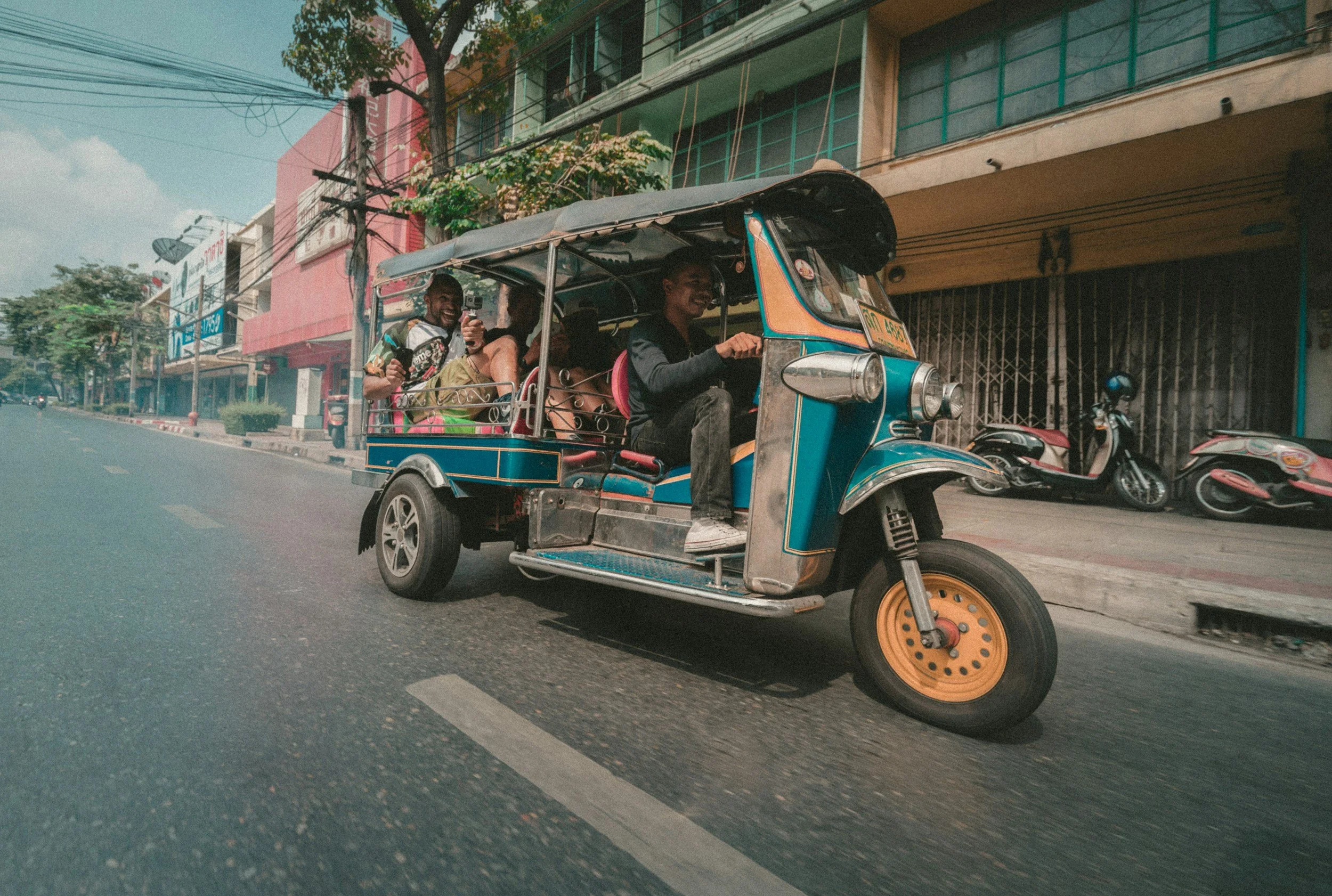
Exploring Cape Coast's 'Pragyas'
This research project explores the social and spatial dynamics of Cape Coast through the lens of motorized tricycles known as ‘Pragyas’. Over the past decade, these vehicles have become integral to the city's transportation network while simultaneously fostering distinct youth subcultures. This research traces the historical emergence of ‘Pragyas’ in the city’s landscape and examines how young male drivers have claimed specific spaces throughout the city. Through ethnographic fieldwork, media and policy analysis, and spatial mapping, my project considers how ‘Pragyas’ function not merely as transportation infrastructure but as sites of social identity formation, economic opportunity, and urban placemaking. The study contributes to broader conversations about informal mobility systems, youth employment in African cities, and the ways in which transportation technologies reshape urban social geography.
Publications
-
King, A. “Stephen Marr and Patience Mususa (Eds.). 2024. DIY Urbanism in Africa: Politics and Practice. London: Bloomsbury. 235 Pp.” African Studies Quarterly 23, no. 3/4 (2025): 129–30.
King, A. 2022. Gender, Food and ‘The Right to the City’ in the Ghanaian Marketplace. Gender & History: Special Issue- Food & Sovereignty 34, no. 2.
King, A, Aubrey Edwards. 2021. The Fabric of Urban Change.Urban Matters. Institute for Urban Research: Malmo, Sweden (Vol. 1).
King, A. 2016. Access to Opportunity: A Case Study of Street Food Vendors in Ghana’s Urban Informal Economy. In V. Demos & M. T. Segal (Eds.), Gender and Food (Vol. 22). Emerald Group Publishing.
-
McKinney, L., Arianna J. King. 2019. “Climate Change and Gender Discrimination in Ghana” In Women's Journey to Empowerment in the 21st Century. Oxford University Press.
Gotham, K., Arianna J. King. 2019. “Urbanization” in Wiley-Blackwell Companion to Sociology. George Ritzer (ed.) Malden, MA: John Wiley.
-
King, A. “Worlding AI: Postcolonial Interventions in the Spaces of Generative Technology.” In Progress.
King, A. “’Skirt and Blouse’ Politics: Market Modernization and Resistance in Cape Coast, Ghana.” In progress.
King, A. (Book Project). Everyday Architects of Cape Coast: Vernacular Placemaking and Urban Becoming. In progress.
-
King, A. 2025. “Ethnography in the Age of AI”. AI Writing Pedagogy: Trinity College.
King, A. 2020. “Book Review: Introducing Urban Anthropology. Rivke Jaffe & Anouk deKoning, New York: Routledge, 2016, 186 Pp.” City & Society 32(2). doi:10.1111/ciso.12303
King, A. 2016. “Timberland Takes on Reforestation in Haiti.” Food Tank, February.
King, A., and Sarah Small. 2015. “New Task Force Combats Issues Surrounding Food, Health, and Nutrition.” Food Tank, April.
Emerging Projects:
-
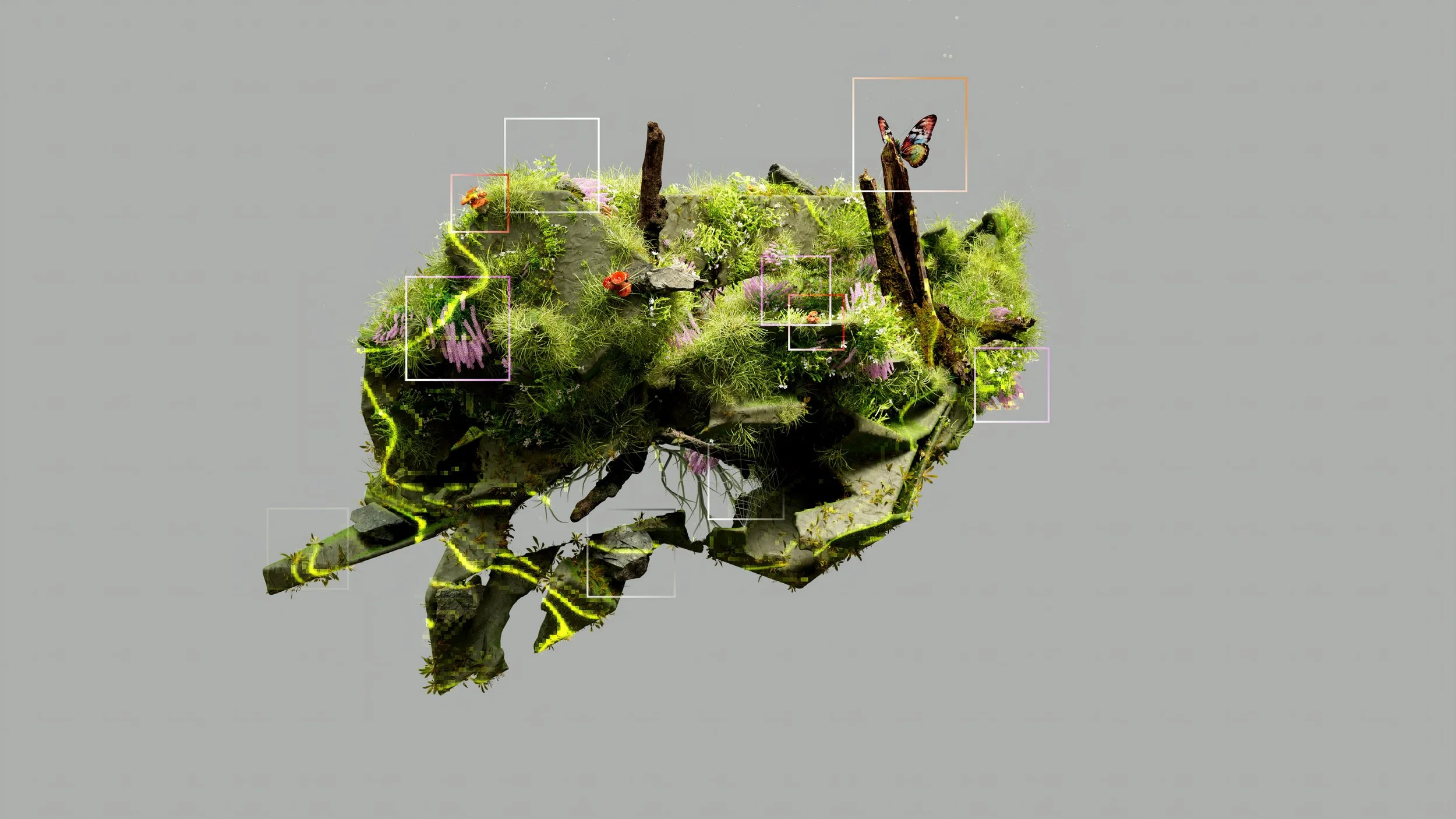
"Worlding' AI
AI systems do not emerge from nowhere—they world and are worlded through specific geographies of power, extraction, and imagination. This project on “worlding” AI exposes how universalizing claims about LLMs (e.g. they are necessary for all humans to participate in the future) mask deeply particular, situated, and extractive geographies of production, labor, and value.
This project applies postcolonial theoretical tools from urban studies like “worlding cities” (Roy & Ong) to technology. The goals is to develop a critical, situated framework that contests universal claims about generative AI’s value by tracing how its benefits and harms are produced through specific places, infrastructures, and power relations across Silicon Valley and Africa.
-
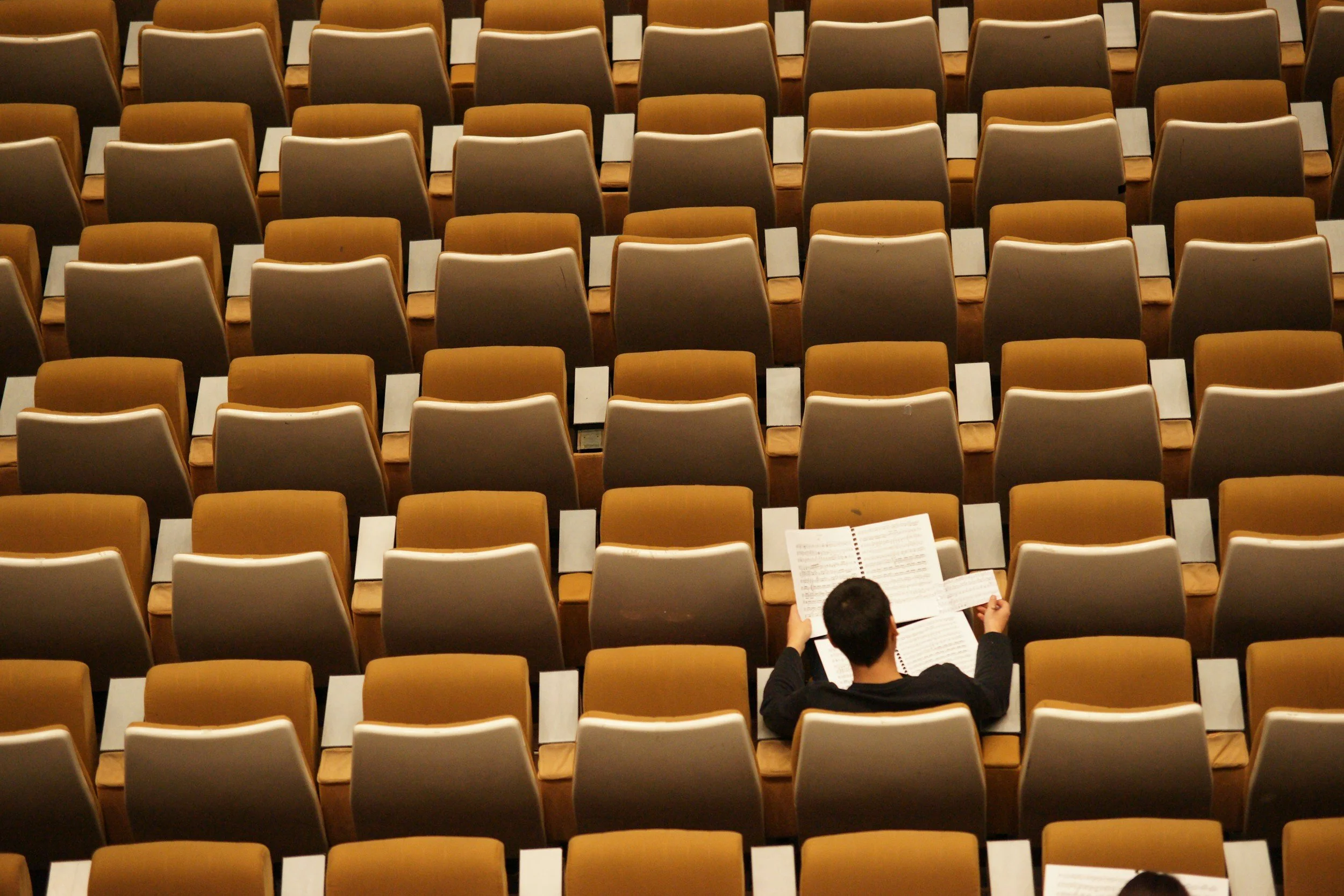
A.I. and the Liberal Arts
At the core of the liberal arts tradition is the desire to ask meaningful questions, engage with complexity, and sustain intellectual curiosity across a variety of disciplines. As artificial intelligence systems are forced into academic and everyday contexts, we face a fundamental challenge: how does the availability of fast “answers” reshape the very nature of questioning itself?
Since working at Amherst College’s AI in the Liberal Arts Initiative, my interest and engagement with the dilemmas presented by the more ubiquitous presence of Artificial Intelligence has blossomed. This emerging research project considers how artificial intelligence fundamentally changes the practice of critical inquiry within the liberal arts (for both students and professors). Through writing, fellowships, conferences, and teaching, I examine questions about knowledge, the nature of questioning, and other intellectual processes that emerge in a new age where instant “answers” are perceived to be readily available.
-
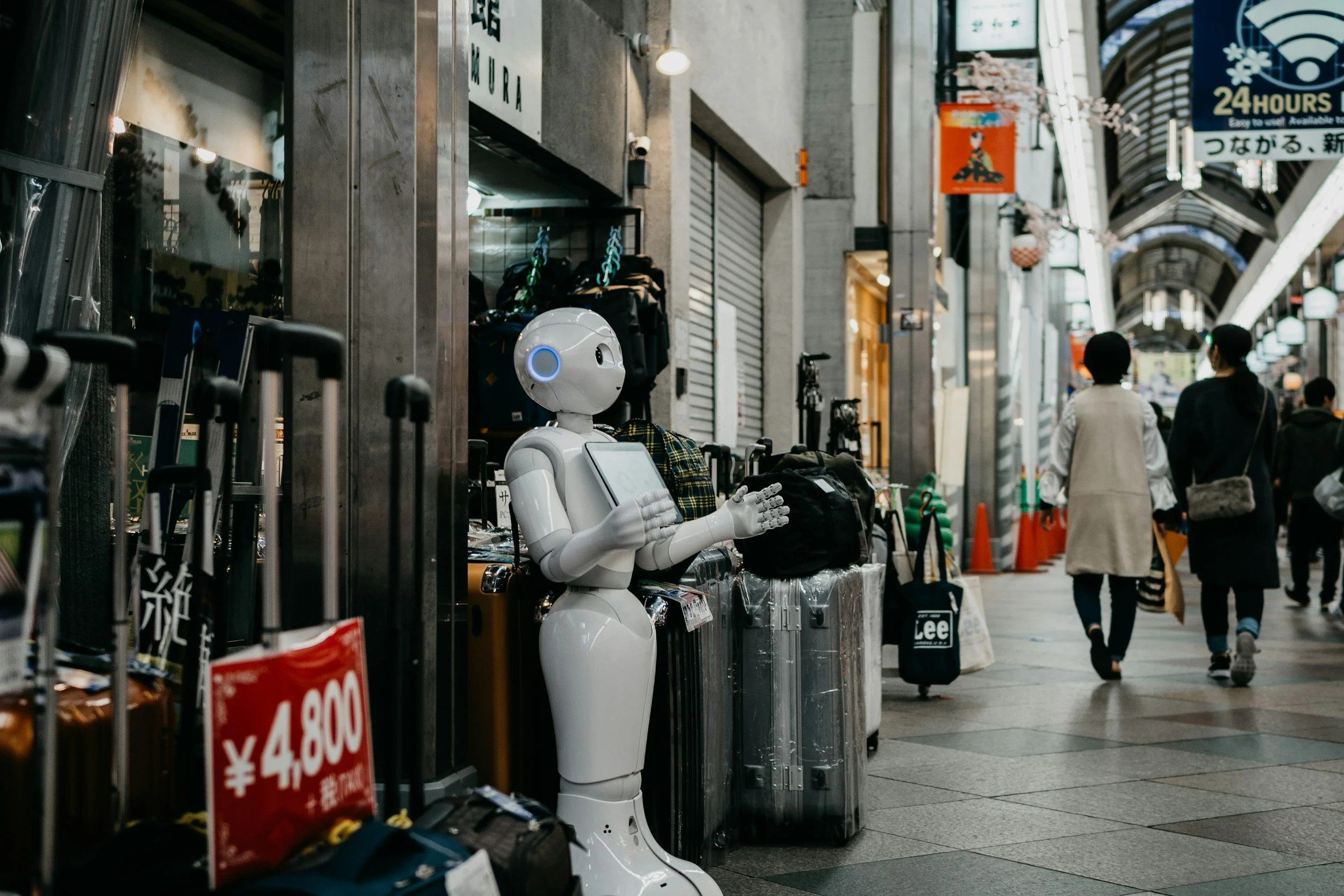
A.I. in the African City
Applying my interest in A.I. to questions around its impact on African cities, this emerging research endeavor leverages interdisciplinary frameworks from postcolonial studies, urban anthropology, and technology studies to explore the materialities of A.I. infrastructures in Africa, focusing first on Google's new ‘AI Community Center’ in Accra. Through critical analysis of these emerging tech hubs, and their social and spatial repercussions, I hope to consider issues of tech sovereignty, resource and labor extraction, and the geopolitical implications of positioning AI infrastructures in Africa. I plan to conduct ethnographic research in and around the Accra AI Community Center in Summer 2026.

